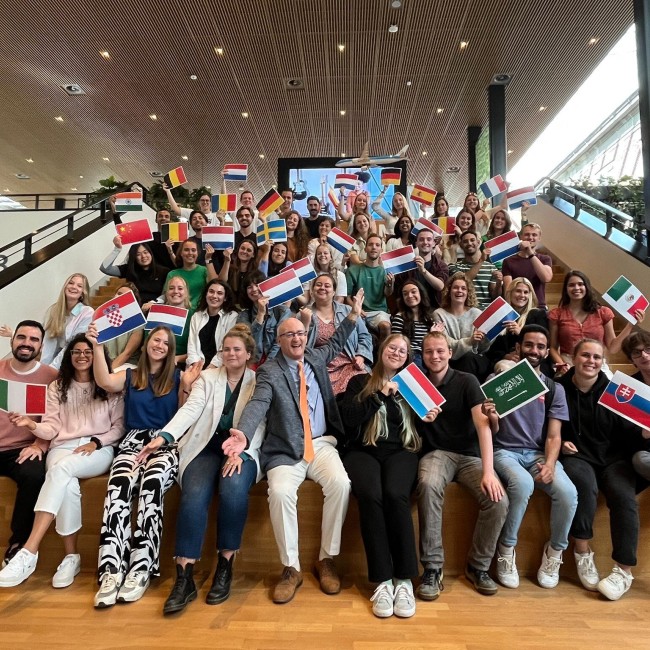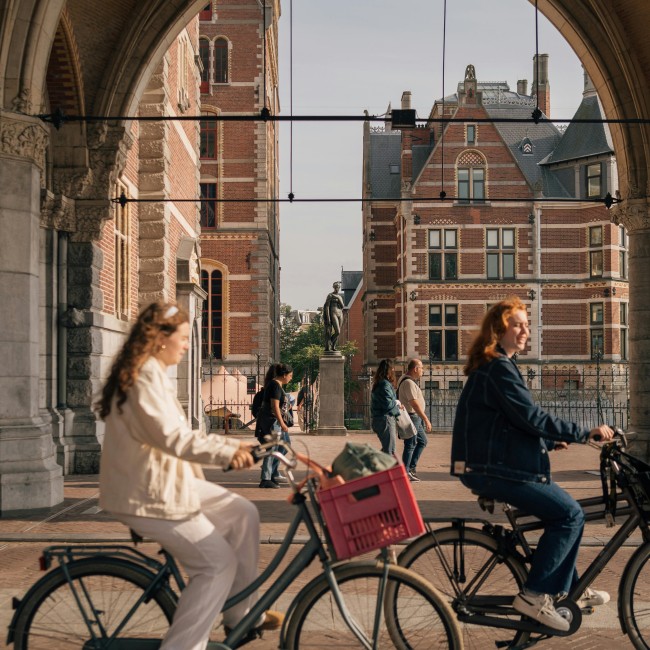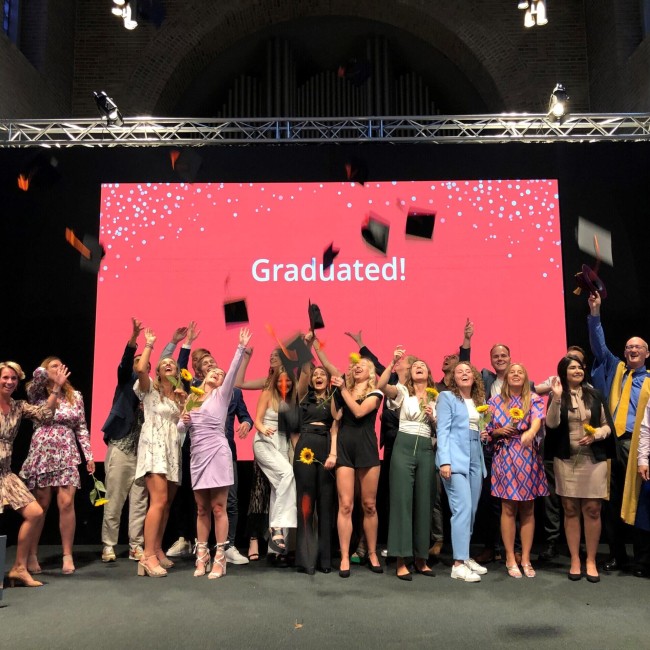Come and meet us
Walking around on campus is the best way to truly experience BUas. Sign up for one of the upcoming events or activities.
Why this study programme at BUas?
- An opportunity to specialise in the sustainable management of urban tourism destinations;
- Work in the Urban Leisure & Tourism Lab in Amsterdam for one month;
- Visit two major European urban tourism areas, for one month each.
Course content
Course content
In a world where over 70% of the population will be living in urban areas, we need fresh insights from professionals who can blend high-quality tourism and leisure services with deep knowledge of visitor flows, city planning, and regenerative placemaking.
This 12-month programme has been developed by BUas together with Hogeschool Inholland and consists of three phases:
- Phase 1 - Theory
During phase 1, you will gain theoretical knowledge and develop your professional skills at BUas in Breda together with students of the Master Tourism Destination Management. This will enable you to effectively analyse the current situation and available potential for development strategies at different tourism destinations. You will also study destination theories, models, developments, engage in practical case studies, and work on individual and group assignments. You will study in an international environment.
We cover a range of topics, including urban tourism, urban mobility, stakeholders, research methods, liveability, marketing, and creative leadership. In the first phase, we focus on the following courses:
- (Urban) Destination Stakeholders and Policy (6 ECTS credits)
- (Urban) Contemporary Marketing, Context and Trends (6 ECTS credits)
- Destination Development, Finance and Organisation (6 ECTS credits)
- Context-Related Research (4 ECTS credits)
- Cross-Cultural Studies (3 ECTS credits)
- Research Process & Methods (3 ECTS)
- Team Performance and Creative Leadership (2 ECTS credits)
Below you will find an explanation of some of these courses:
In Destination Development, Finance and Organisation, you will learn about the economic impact of tourism, how tourism-related projects and events are financed, and how project management works.
In Team Performance and Creative Leadership, you will learn about how best to communicate across cultures. You will learn to apply the right skills, tools and competencies as a team to start a new project, understand group dynamics, and act accordingly.
In Urban Destination Stakeholders and Policy, you will learn about various concepts of stakeholder modelling, mapping stakeholder relationships and interests. You will also explore stakeholder dilemmas and their connections to current developments in tourism. Additionally, you will create a tourism vision and a master plan.
- Phase 2 - Field research
In phase 2, you will conduct a three-month field research project starting in the Urban Leisure & Tourism Lab in Amsterdam. You will work in small groups and apply the theory from the first semester to the real urban complexities. You will analyse tourism and mobility issues for three geographical areas, from different stakeholder perspectives. The field research on urban tourism and mobility issues will allow you to deepen your research skills and knowledge. Additionally, you will have the opportunity to conduct similar team-based research in two other European cities, for one month each.
- Phase 3 - Thesis
In phase 3 of the programme you will work on your individual thesis. This can be done at a destination of your own choice.
Urban Leisure & Tourism Lab Amsterdam
During the programme we work together with The Urban Leisure & Tourism Lab (ULT Lab) in Amsterdam. In this lab, you will conduct field research to explore policies and interventions in urban tourism and leisure as well as mobility challenges. The ULT Lab allows you to research, design, and connect to residents as well as tourism actors. Leisure and tourism can provide strategies for change and aim to create revitalising and sustainable cities.
Teaching method
We offer you a small-scale, international study environment. The number of students in the Tourism Destination Management community varies each year between 30 and 50, with approximately 50% being international students. You begin in one class that includes all students.
During phase 1, the class will be divided as needed for workshops, consultation sessions and group work.
During phase 2, you will work in groups under the guidance of supervisors – partly on site and partly through online support. At the end of each destination, you will submit a report and deliver a group presentation.
In phase 3, you will work independently, receiving online guidance and feedback from your supervisor, if needed. Your final product consists of a thesis and an oral defence of this thesis.
During this programme, you will have no examinations. You will earn study credits by submitting portfolios, reports and giving presentations. Some courses may involve company visits or on-site assignments.
Study load and coaching
Urban Tourism and Mobility is a one-year, full-time programme of an average 40 hours per week. The total study load is 60 ECTS credits. To give you an idea: 1 ECTS credit equals about 28 hours of study per week. Please note that this programme lasts 12 months. We start in the last week of August and the majority of students graduate in the last week of August of the following year.
You will have daily contact with a specialist team of lecturers, guest lecturers, academics and professionals from the tourism sector. The operations manager is also available to help you with day-to-day matters.
- A typical week
Each week is arranged differently. The number of scheduled class days varies from week to week. Below is an example of an average week.
Monday
- 09.30-10.30: Introduction lecture on CCS (Cross Cultural Studies)
- 11.00-12.00: Guest lecture on CRR (Context Related Research)
- 12.00-12.30: Lunch
- 12.30-14.30: Working on group assignments with classmates *
- 14.30-16.00: Workshop on Urban Mobility Policies
Tuesday
- 14.00-15.00: Lecture on CRR (Context Related Research)
- 15.00-17.00: Consultation session on Urban Mobility Policy
Wednesday
- 9.30-11.30: Workshop on CCS (Cross Cultural Studies)
- 11.30-13.30: Seminar on Urban Moblity Policy
- 13.30-14.00: Lunch
- 14.00-15.00: Lecture on CCR (Context Related Research)
- 17.00-19.00: Monthly master’s drinks on campus together with students from other BUas master’s programmes
Thursday
- 9.30-12.00: Presentations on Urban Mobility Policy
- 12.00-13.00: Lunch and free time
- 13.30-15.30: Guest lecture (Context Related Research)
- 15.30-17.00: Working on group assignments with classmates *
Vrijdag
Working on assignments from home*These times are scheduled by the students themselves; you are free to decide with your group when to work on your assignment.
Student well-being
BUas encourages and helps you to make the most of yourself, whatever your circumstances. Maybe you have a chronic illness, are a family carer, a competitive athlete, or juggle your studies with running your own business? Our study coaches, student counsellors and student psychologists are here to help. Do you need extra support or advice? Or special facilities? Then take a look at the options here.
Guest lectures & fieldwork
This master’s specialisation programme has been developed by Breda University of Applied Sciences (BUas) together with Hogeschool Inholland.
You will regularly receive guest lectures from industry professionals. Some examples from previous years are:
- Dr Andrew Mzembe about sustainable innovation management in tourism
- George Arbuckle about aviation and sustainability
- Prof. Claudio Milano about urban tourism and (im)possibilities in times of crisis
Fieldwork
In the second semester, we will visit three cities in Europe, each with a different focus in collaboration with one of our professorships. The duration of the fieldwork is one month for each city. Examples of field research topics include urban placemaking, overtourism, quality of life and interurban mobility issues.
Specialisation
Urban Tourism and Mobility is a specialisation in the Tourism Destination Management master’s programme. This specialisation focuses on urban tourism and city planning, overtourism and crowding, urban placemaking and urban and inter-urban sustainable mobility choices.
With this master's specialisation, you will obtain the MA Tourism Destination Management with the specific reference of Urban Tourism and Mobility.
What makes this study programme unique
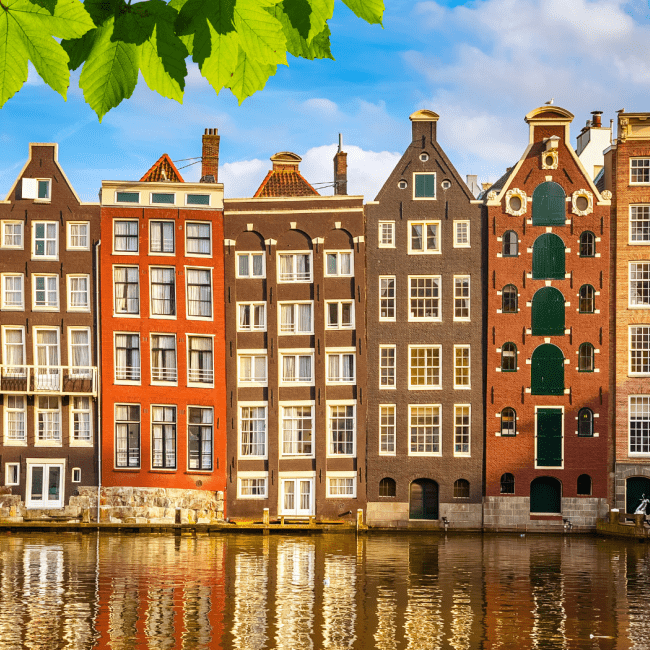
Urban Leisure & Tourism Lab Amsterdam
In this lab, you will conduct field research to explore policies and interventions in urban tourism and leisure as well as mobility challenges. The ULT Lab allows you to research, design, and connect to residents as well as tourism actors.
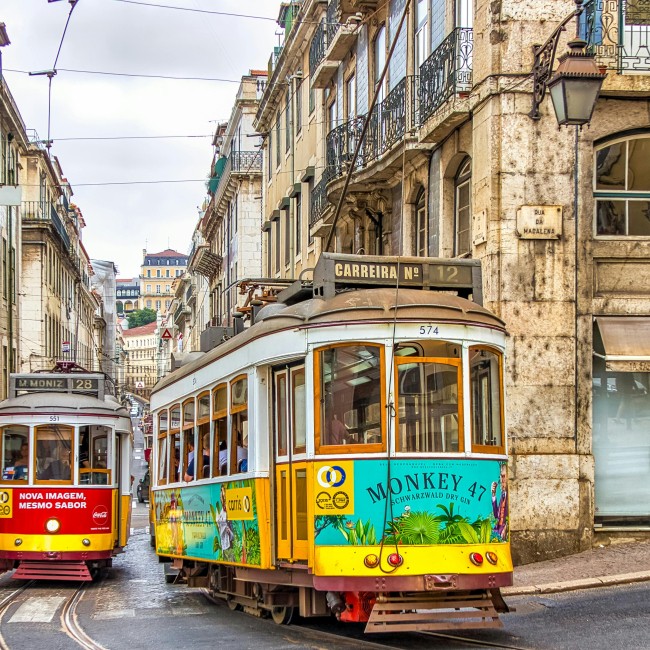
Field research in Europa
Experience, discover and research the tourism challenges in urban development, mobility and sustainability of two other European cities besides Amsterdam.
Admission & application
What are the admission requirements?
Students are eligible if they hold a bachelor’s degree (BA, BSc., BBA, B Com), for example in the fields of tourism, hotel management, international business, management, economics, law, e-commerce, urban development, geography, social sciences or finance. If you do not meet these requirements, you can have a look at the options available to you.
Information about admission requirements
What does this study programme cost?
For academic year 2025-2026 the statutory tuition fee for master's programmes is €2,601. In addition, you should take extra costs for software, excursions, etc. into account.
How can I apply?
If you meet the admission requirements, you can apply for this study programme. You can apply until 15 August, but you are encouraged to apply before 1 July because of the summer holidays.
Please note that you apply for Tourism Destination Management, in Studielink you can then select the Urban Tourism and Mobility specialisation.
Find out if this study programme suits you
Seeking a master’s programme in tourism, leisure, or imagineering? Take this short quiz to discover the best match for you.

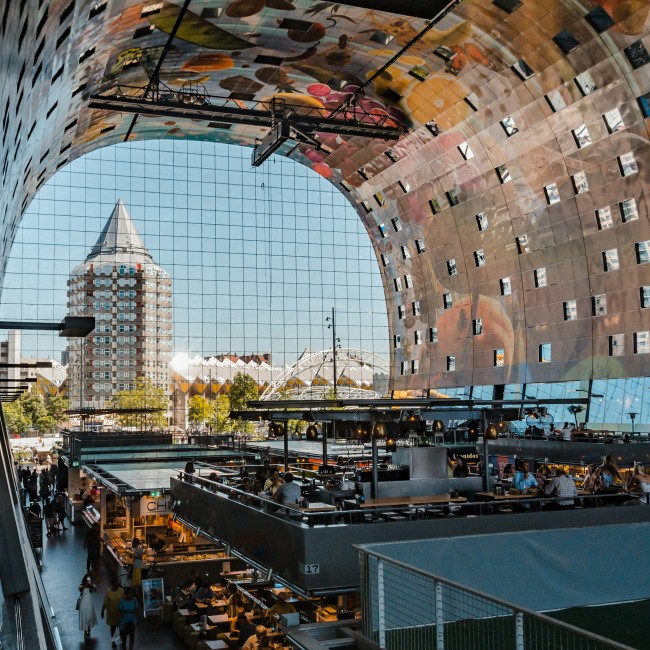
What can you do after your studies?
Graduates of the Master Tourism Destination Management with Urban Tourism and Mobility specilisation are entitled to the degree of Master of Arts and qualified for international policy and advisory positions, international management positions and research positions.

Virtual campus tour
Have a virtual look and discover the Horizon building where you’ll be studying and what more the campus has to offer.

Get inspired!
Read more about projects, research and insights in the field of Tourism.
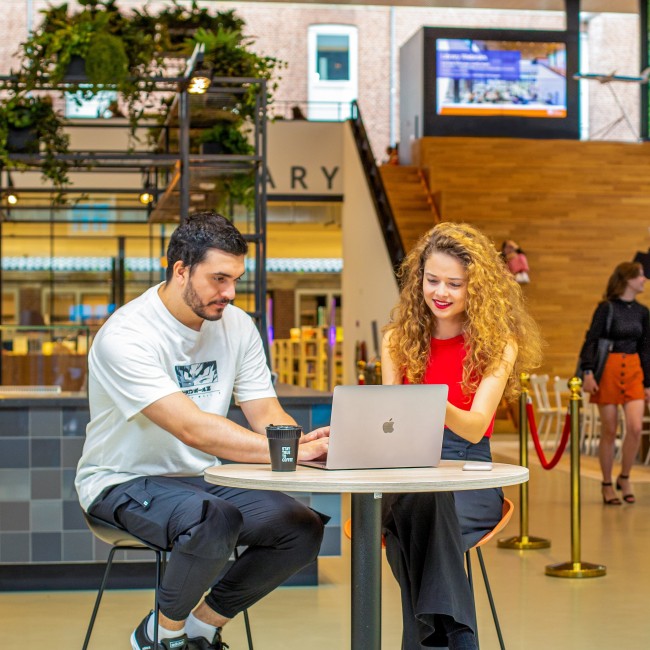
Help with choosing your study programme
Do you want to continue after your bachelor's or further develop your professional skills and are you looking for a master's? Discover, compare and choose your master's programme at BUas.

